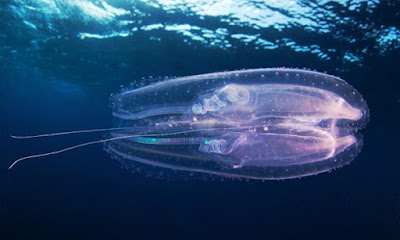• The world around us is riddled with secrets, both above and below. While we marvel at the heavens, we frequently overlook the marvels hiding beneath the waters of our own planet.
• Space exploration and ocean exploration are two of humanity's most thrilling adventures. But how do they compare? Let's delve further and look beyond the stars to investigate this fascinating subject.
1. Why should we explore space?
• Space has always inspired us because of its grandeur. It is the final frontier, presenting limitless opportunities to learn about the universe, our origins, and potentially our future.
• Here are a few reasons why space exploration is important:
Understanding the Universe: Studying space teaches us about stars, planets, black holes, and galaxies.
Missions such as Mars Rovers and the James Webb Space Telescope search for signs of life beyond Earth.
Space flights have resulted in technological advancements such as GPS, satellite communication, and even medical gadgets.
Colonizing Other Worlds: Space exploration gives us hope that, if Earth becomes uninhabitable, we will be able to settle on worlds such as Mars.
2. Why should we explore the ocean?
• While we fantasize about space, we occasionally ignore the secrets of the oceans, which cover more than 70% of Earth's surface. Oceans are as foreign as distant worlds.
• Here's why ocean exploration is just as exciting:
Discovering Lifeforms: The ocean is home to weird animals, many of which have yet to be identified. Oceans protect the planet by regulating the climate and providing oxygen. Exploring them helps us better understand and defend these systems.
Untapped Resources: From pharmaceuticals to minerals, the ocean contains resources that could help civilization.
Understanding History: Sunken ships and underwater ruins provide a look into human history.
3. Challenges of Space and Ocean Exploration.
• Both space and water exploration provide unique challenges:
In space: Extreme temperatures and radiation. The requirement for life-support systems in severe situations. Building rockets and space missions is extremely costly.
In the oceans: Crushing pressure in the deep water. There is limited visibility and communication underwater. Risky environments, such as underwater volcanoes.
4. Technologies that push boundaries.
Both professions demand cutting-edge technology.
Space exploration includes rockets, telescopes, and robotic rovers.
Ocean exploration involves submarines, underwater robots, and sonar equipment.
5. How do they benefit humanity?
Space inspires future generations, fosters international cooperation, and develops new technology. The ocean contributes to our ability to combat climate change, protect biodiversity, and secure long-term resource availability.
6. Which is more important?
This is a difficult question. Space exploration allows us to dream large and push our limits. Ocean exploration keeps us grounded and reminds us of the treasures that remain to be discovered on Earth. Both are vital in their own ways and contribute to humanity's progress.
• Whether we look to the skies or dive into the depths, space and ocean exploration pique our interest and motivate us to develop. They remind us that the journey of discovery never ends. Rather of choosing between the two, we should embrace both. After all, investigating the unknown—whether above or below ground—is what defines us as humans.
What are your thoughts? Should we focus on space or the ocean? Let's talk in the comments!












.jpeg)
0 Comments